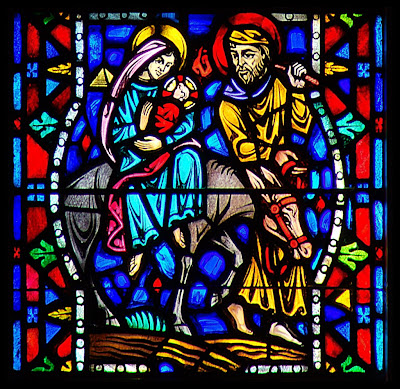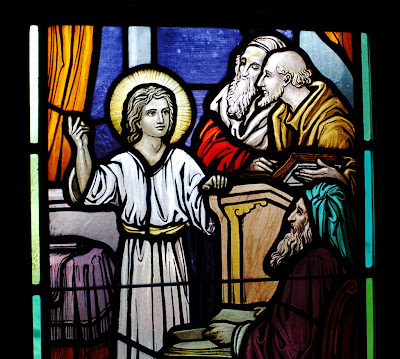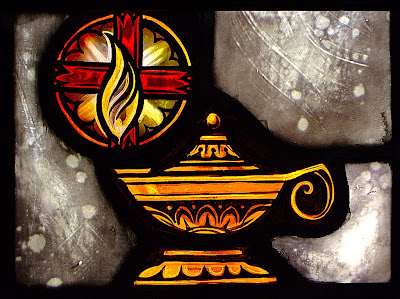 |
“In the past God spoke to our forefathers through the prophets at many times and in various ways, but in these last days he has spoken to us by his Son, whom he appointed heir of all things, and through whom he made the universe. The Son is the radiance of God’s glory and the exact representation of his being, sustaining all things by his powerful word.” (Hebrews 1:1-3)
When the Angel Gabriel said to the virgin, Mary, “You will be with child and give birth to a son, and you are to give him the name Jesus…” God was then incarnate in a microscopic single celled person, Jesus. He was still God, but He humbled Himself and from the moment of His conception He lived a life just like the rest of us, except without sin.
It should be little wonder that “the world did not recognize Him” (John 1:10) because in His humility Jesus did not use His Divine power until his ministry began. Jesus had to learn who He was, and why He came to earth to live as one of His beloved creatures. And yet, even though Jesus had to learn and grow like any other child, He still lived the sinless life according to His nature. Even though Mary and Joseph surely sinned against Him (how could they not?), and even though His siblings: James, Joseph, Judas, Simon, and his sisters (Mark 6:3); surely sinned against Him, yet Jesus never sinned against them, nor against God, the Father.
 |
| Window from Trinity Lutheran Church, Herscher, Illinois |
Pastor Jared Melius of Mt. Zion Lutheran Church, Denver, Colorado, has some great insight into Luke 2:41-52 (Issues Etc. audio link) which shows just how much Jesus gave up to win our salvation. This story is not about Christ’s Nativity, but it happened when He was 12 years old. Sometimes this event is described as the boy Jesus teaching in the temple, but that is not the way Luke records the event. Pastor Melius’ brilliant insight is that although Mary and Joseph regularly went to Jerusalem for the Passover this may have been Jesus’ first time there since He was 40 days old (Luke 2:22-ff). Jesus did not come to teach, but to learn, as Luke makes a point of saying how Jesus grew as a child.
 |
The Holy Scriptures were not written only for us sinners, that we may believe in Christ as our savior, but they were also written for Jesus, so that He might also know what He had to do in obedience to God to win our salvation. Jesus, too, had to trust in God’s Word, and obey God as a man, even though it meant great suffering and torment for Him. Out of His love for God and for us sinners, Jesus obeyed His Father and was obedient unto death, even death on a cross (Philippians 2:5-11)!
May Christ bless you and your family through the Christmas Season and throughout the whole year as you contemplate God’s incarnation, and all that Jesus did to save you from sin and death!





